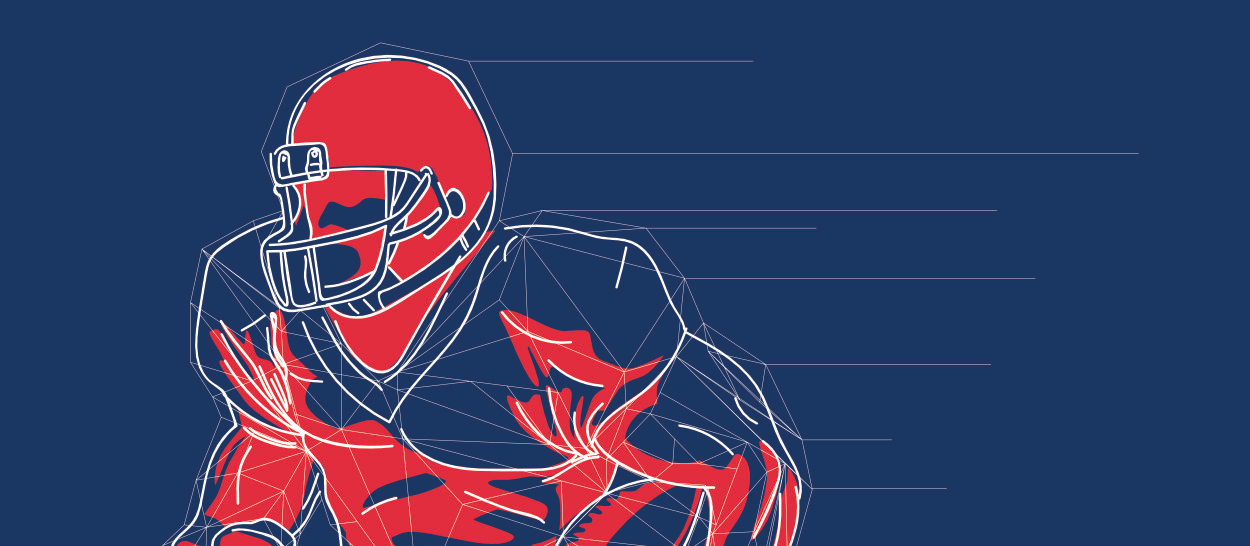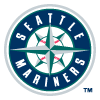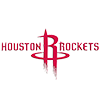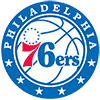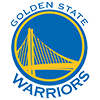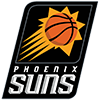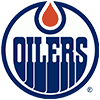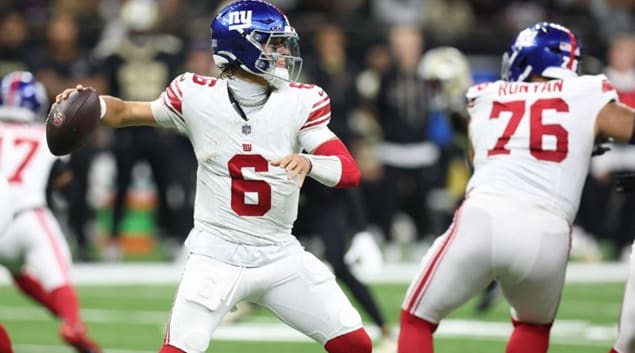Let me just get this out of the way: I'm no doctor. Quite frankly, I can't stand the site of blood and I may be one of the worst people in the world when it comes to getting a shot. That said, I am qualified to analyze one of the most troublesome, and unfortunately, common injuries in the NFL today: concussions. Now don't get me wrong; I am not here to delve deep into medical specifics regarding the injury or even analyze the long-term consequences of being hit in the head too many times (though I think we can all agree that the consequences are not good, and apparently so does the NFL, to the tune of $765 million). I'll leave that analysis to our good friend at RotoWire, Jeff Stotts. What I can do is equally as critical to fantasy owners: namely, arm owners with knowledge detailing the ins-and-outs of the strict NFL concussion policy and what barriers a player must overcome to suit up on Sunday.
A concussion is the most common type of brain injury, frequently defined as a head injury with a temporary loss of brain function. It is most often caused by a sudden blow to the head, which can cause the brain to shake inside the skull. There are three grades of concussion, determined by severity. Several systems exist in defining those grades, but most are concerned with the length of symptoms and whether the sufferer loses consciousness. There is no set treatment for
Let me just get this out of the way: I'm no doctor. Quite frankly, I can't stand the site of blood and I may be one of the worst people in the world when it comes to getting a shot. That said, I am qualified to analyze one of the most troublesome, and unfortunately, common injuries in the NFL today: concussions. Now don't get me wrong; I am not here to delve deep into medical specifics regarding the injury or even analyze the long-term consequences of being hit in the head too many times (though I think we can all agree that the consequences are not good, and apparently so does the NFL, to the tune of $765 million). I'll leave that analysis to our good friend at RotoWire, Jeff Stotts. What I can do is equally as critical to fantasy owners: namely, arm owners with knowledge detailing the ins-and-outs of the strict NFL concussion policy and what barriers a player must overcome to suit up on Sunday.
A concussion is the most common type of brain injury, frequently defined as a head injury with a temporary loss of brain function. It is most often caused by a sudden blow to the head, which can cause the brain to shake inside the skull. There are three grades of concussion, determined by severity. Several systems exist in defining those grades, but most are concerned with the length of symptoms and whether the sufferer loses consciousness. There is no set treatment for a concussion, as the symptoms usually go away without treatment, but most sufferers are told to get a good night's sleep and rest during the day until they can return to normal activities without experiencing any symptoms. Occasionally, a person who has suffered from a concussion can develop post-concussive syndrome, a situation where the symptoms continue long after the original injury was suffered.
In recent years (or even farther back than that depending on who you believe), the NFL concluded that one's brain shaking inside their skull has extremely serious consequences, both in the short term and the long term. As a result, in 2007 the NFL enacted its first regulations limiting a player's ability to return to a game if he suffered from concussion-related symptoms. Despite the league's efforts, NFL executives were heavily criticized by the House Judiciary Committee for their minimalist response to growing concerns regarding the health and safety of its players in an inherently violent sport. In December 2009, the league responded, implementing strict guidelines regulating when a player would be eligible to return to the playing field after suffering concussion-related symptoms. The NFL continues to adapt to regulate the issue and the current guidelines are as follows:
- As an initial matter, there is now an "eye in the sky" observer who scans the field looking for players who may require assessment for a concussion. If that observer notices symptoms or behaviors that may be the result of a potential concussion (including loss of consciousness, amnesia, disorientation, or persistent headaches, particularly if accompanied by photosensitivity, nausea, vomiting or dizziness), that observer sends down a notice to the team to have that player examined.
- Players are then examined by an independent neurological trainer. There is one on each sideline, assigned by the league but not affiliated with either team. The independent trainer performs a formal neurological exam, and if a concussion is determined, the player is prohibited from returning to the field that day. In a nutshell, if your player takes a blow to the head and can't tell the trainer in what stadium he is playing, don't expect to see him back on the field again that day.
- Once a player has been diagnosed with a concussion, he must clear four stages of post-concussion testing, a process that can take days, weeks or even months before being allowed to return to the field. First, a player must pass a baseline cognitive test (most teams use the ImPACT Test, which is short for Immediate Post-Concussion Assessment and Cognitive Testing). Each player is given a baseline brain test before the season starts. He will not clear this stage until his post-concussion baseline test is close enough to the preseason exam.
- Stage Two, "Rehab," is a time consuming one. Within Stage Two, there are five phases. In each phase, a player engages in an activity where his heart rate is increased each time. The kicker: usually, 24 hours of recovery is given between each phase, and the players must emerge asymptomatic (symptom-free) from each one. The 24-hour time period generally required between each phase in Stage Two is the reason why so many players are labeled "questionable" come Wednesdays before a game and little is often known as to their availability until the weekend.
- Stage Three also can take at least a few days as a team physician will meet with the concussed player on a handful of occasions and said player must show improvement with each subsequent visit.
- Finally, a player reaches Stage Four, which might be the toughest hurdle of all. Fearful that team doctors will simply waive players on through the process and succumb to internal team pressure to clear an impact player in a hurry, the NFL again requires a league-approved independent neurologist to sign off that a player is fully asymptomatic before being returned to the field. Given the league's stated interest in erring on the side of caution when it comes to head injuries, it can be expected that a player will have to be completely symptom-free before we can expect him to suit up.
According to Eagles concussion specialist Dr. Gary Dorshimer, it's impossible to predict a player's progress through the various stages of concussion recovery, since every concussion is different and heals at a different, and unpredictable, rate. Guessing which stages of the NFL policy will trip up a given player is akin to guessing which Saints' running back will carry the load on a given day. Additionally, NFL regulations allow a concussed player to complete only up to two stages towards clearance each day. In most cases, a player diagnosed with a concussion will have to wait to Wednesday, at the earliest, to be cleared to play. As a result, players with shortened weeks will continue to have difficulty suiting up with at least one NFL game now being played on Thursday every week.
This year, concussions have again wreaked havoc in the NFL as fantasy starters Andre Johnson, Eddie Lacy and Terrelle Pryor have all missed time as a result of teeth-ratting hits, and given the violent nature of today's game, more players can expect to be sidelined. For fantasy owners, roster moves in response will likely make or break many fantasy seasons. Take LeSean McCoy for example. Owners who understood the substantial obstacles that he would have to overcome in order to take the field after suffering a concussion last season were likely the same ones who had out-of-nowhere star Bryce Brown pegged as their number one waiver priority. Ditto those who tabbed Colin Kaepernick when Alex Smith took the dreaded blow to the head. Despite all the uncertainty surrounding concussions, understanding the barriers a player has to overcome in order to be deemed mentally and physically capable of participating in an NFL game can provide fantasy owners a huge edge when making critical roster decisions.
Justin Fielkow is an attorney at the Franklin Law Group in Northfield, Illinois, a Chicago suburb. Justin attended Tulane University Law School and obtained a Certificate in Sports Law. He has been writing for Rotowire since 2008, first while at the University of Wisconsin, then and still as the beat writer for the New Orleans Saints, and now as a featured columnist providing insight twice a month into the legal side of sport with a fantasy spin.


